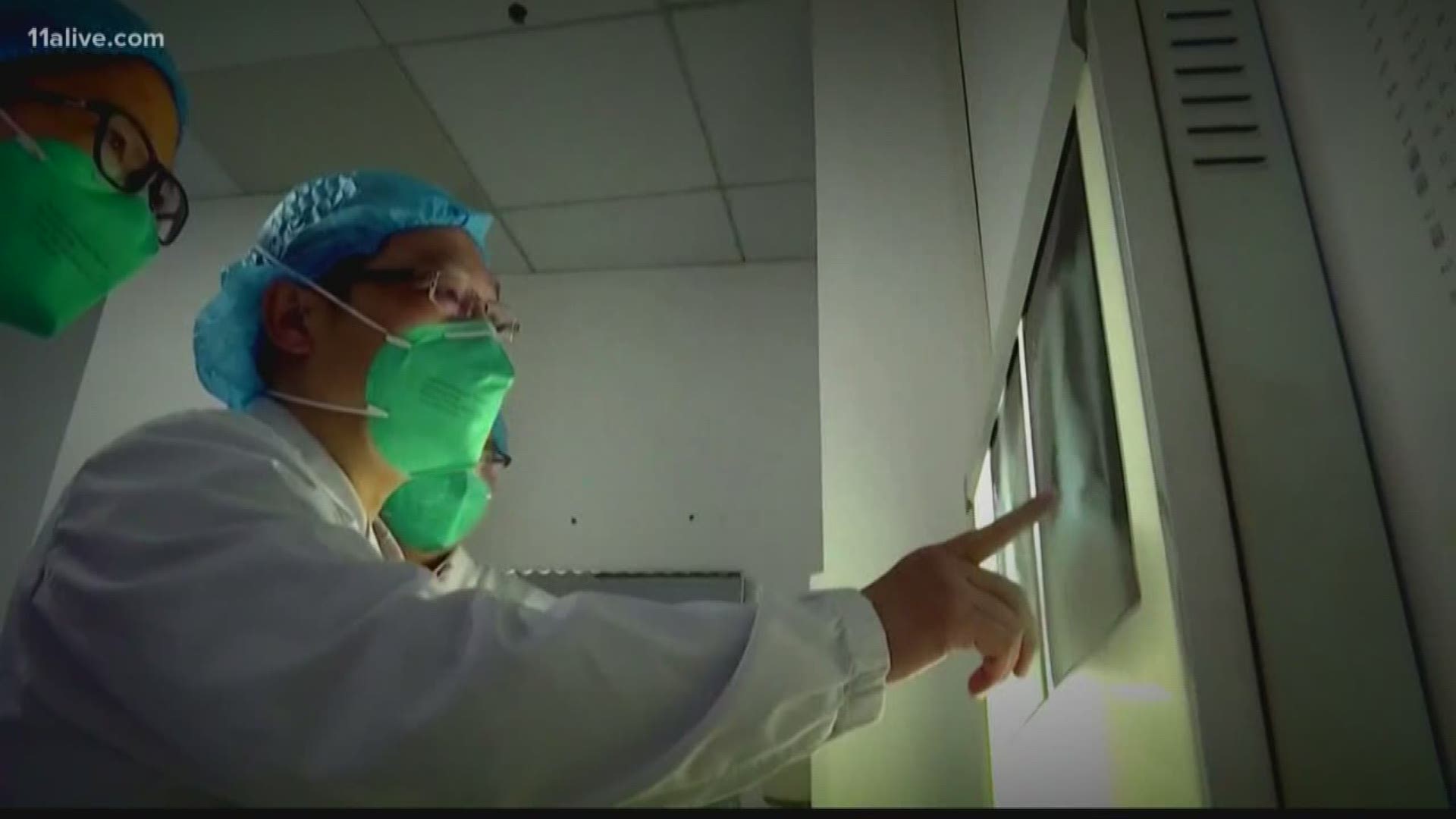ATLANTA — Health officials are on high alert as a second case of the mysterious and deadly Wuhan coronavirus has been confirmed in the United States.
A woman from Chicago has tested positive after coming back from a month-long visit to China, and at least 63 other potential cases are being investigated in 22 states. Two other cases have also been confirmed in France.
Coronavirus has already killed at least 26 people in China.
The Chinese government has sealed off several cities -- including Wuhan -- which is considered Ground Zero for the virus.
The Atlanta-based Centers for Disease Control and Prevention has issued a Level 3 Travel Notice Warning for Wuhan, China, which means that unless you absolutely have to travel there, don't go.
A lower Level 1 Travel Advisory is in effect for the remainder of the country, which still suggests that you avoid going if you can.
11Alive spoke with Dr. Colleen Kraft, the associate chief medical officer of Emory Hospital, on Friday to answer major questions.
Health officials are focused right now on doing what they can to prevent cases here in Georgia. No possible cases have been reported here yet, and flights from the heavily affected parts of China have been stopped.
So, they haven't had to screen any passengers yet at Hartsfield-Jackson International Airport, but they are prepared to do so.
With that being said, officials said it can take up to two weeks for the symptoms to show up, and that Georgia isn't out of that window yet.
"We think the incubation may be about two weeks, and that is something that we're thinking about a lot these days," Kraft said.
Kraft was on the medical team which treated the first U.S. Ebola patient at Emory University Hospital in 2014. She sat down with 11Alive on Friday to talk about the coronavirus and address top concerns from 11Alive viewers.
Your questions answered
How is the virus spread from person to person?
"The inhalation of droplets when someone else coughs may be in the air," Kraft said. "A route that we don't often think about is really our environment can transfer it."
Kraft said that while you may move away when someone sick coughs near you, touching things sick people may have touched is just as crucial.
The takeaway -- wash your hands and sanitize commonly used items as much as you can, especially in public places.
Are there vaccines for the virus?
"Because this is so new, there is not a vaccine, but I can tell you researchers at the Hope Clinic here at Emory are going to be studying this virus and trying to create a vaccine against this virus," Kraft said. "If we can make and create a coronavirus vaccine, we may be able to prevent even the common cold."
Kraft said there are a few companies that have experimental drugs, but unless there is a surge in the U.S., they won't likely be used.
She said that, for now, the only treatment for coronavirus is respiratory supportive care.
What about the Texas A&M student who is believed to have the virus.
Officials have not listed that case with the two confirmed U.S. cases in Illinois and Washington state.
The CDC said it can take 24 hours to get back the test results.
Atlanta-based Delta Air Lines has started offering travel waivers for China-bound passengers who need to change their plans as a result of the growing concern over the spread of the coronavirus.
RELATED STORIES |

